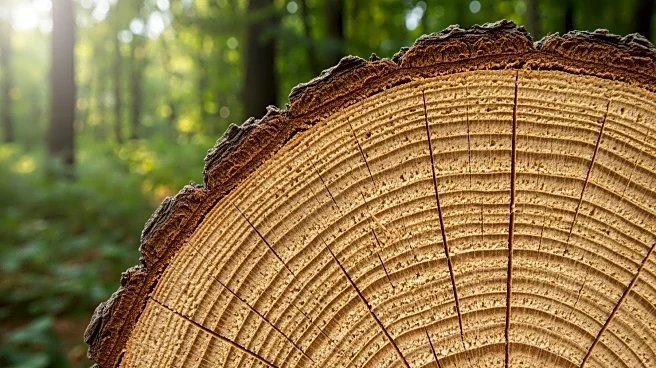What's Happening?
The Chinese Academy of Sciences has significantly advanced dendrochronology and paleoclimatology research, particularly in the Tibetan Plateau region. Since the 1950s, Chinese scientists have been conducting tree-ring studies to reconstruct historical climate patterns. The discipline has grown exponentially, with over 200 institutions in China contributing to approximately 3000 studies, many published in high-impact journals. The establishment of the China Dendro Society in 2019 has further facilitated research development, providing platforms for early-career researchers and enhancing international collaborations. China's infrastructure supports over 70 laboratories equipped with advanced tree-ring measurement systems, contributing to high-quality climate reconstructions from various regions.
Why It's Important?
China's advancements in dendrochronology are crucial for global climate research, offering detailed insights into historical climate variability. The extensive data from tree-ring studies help scientists understand past climate conditions, which is vital for predicting future climate scenarios. China's leadership in this field enhances international scientific collaboration, potentially influencing global climate policy and research priorities. The growth of this discipline in China also underscores the country's commitment to addressing climate change, providing valuable data that can inform sustainable environmental practices and policies worldwide.
What's Next?
The continued expansion of dendrochronology research in China is likely to foster more international collaborations, particularly with U.S. institutions. As China develops more tree-ring chronologies, there may be increased efforts to archive these data in global repositories like the International Tree-Ring Data Bank. This could enhance data accessibility for researchers worldwide, facilitating broader climate studies. Additionally, China's focus on training early-career researchers suggests a sustained investment in the field, potentially leading to new methodologies and discoveries in climate science.
Beyond the Headlines
The rapid growth of dendrochronology in China highlights broader implications for scientific data sharing and collaboration. While China has developed numerous tree-ring chronologies, less than ten percent are archived in international repositories, indicating a need for improved data sharing practices. This situation reflects a common challenge in the natural sciences, where data retention can limit research progress. Addressing these issues could enhance global scientific collaboration and data transparency, benefiting climate research and policy development.










